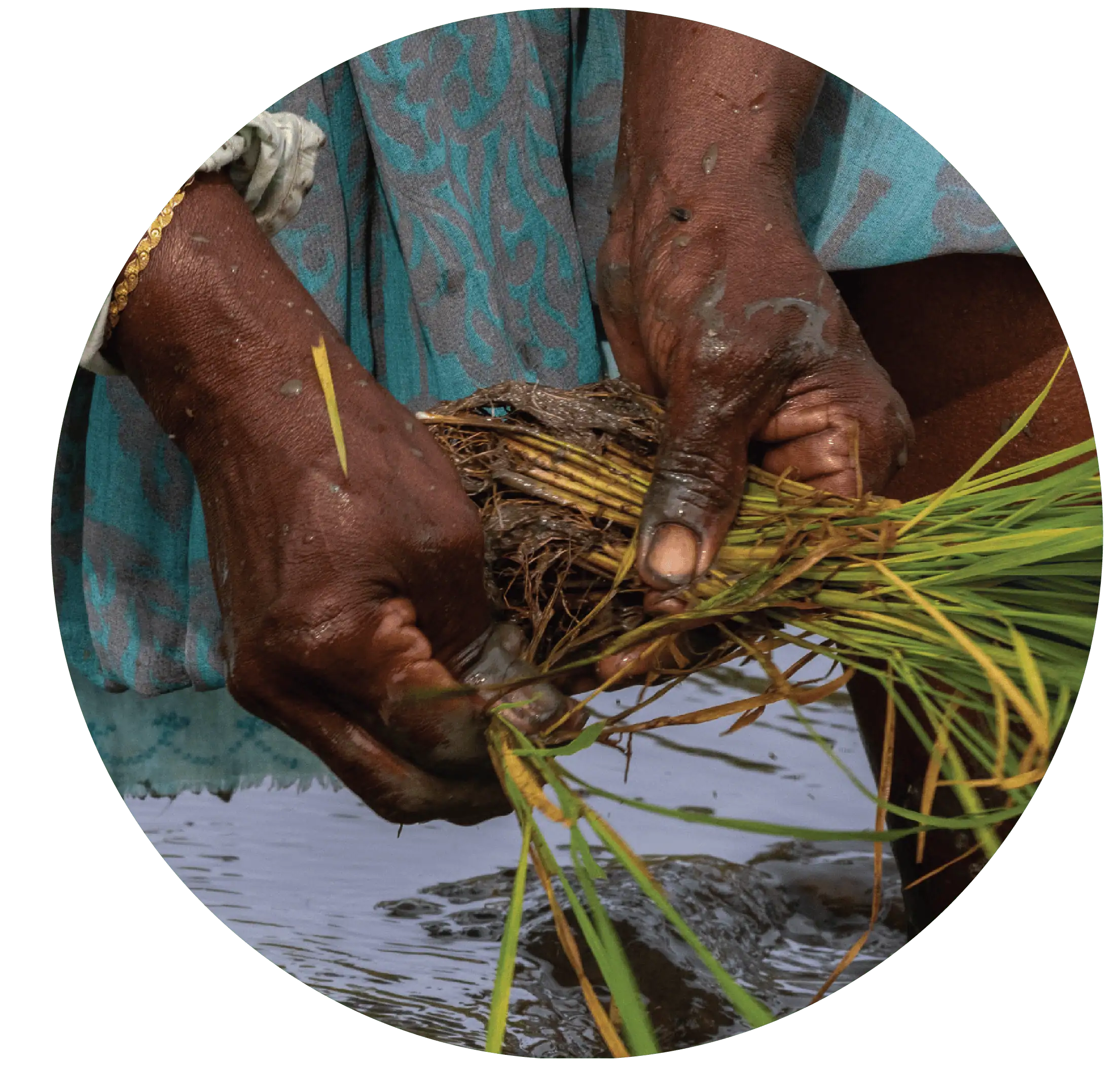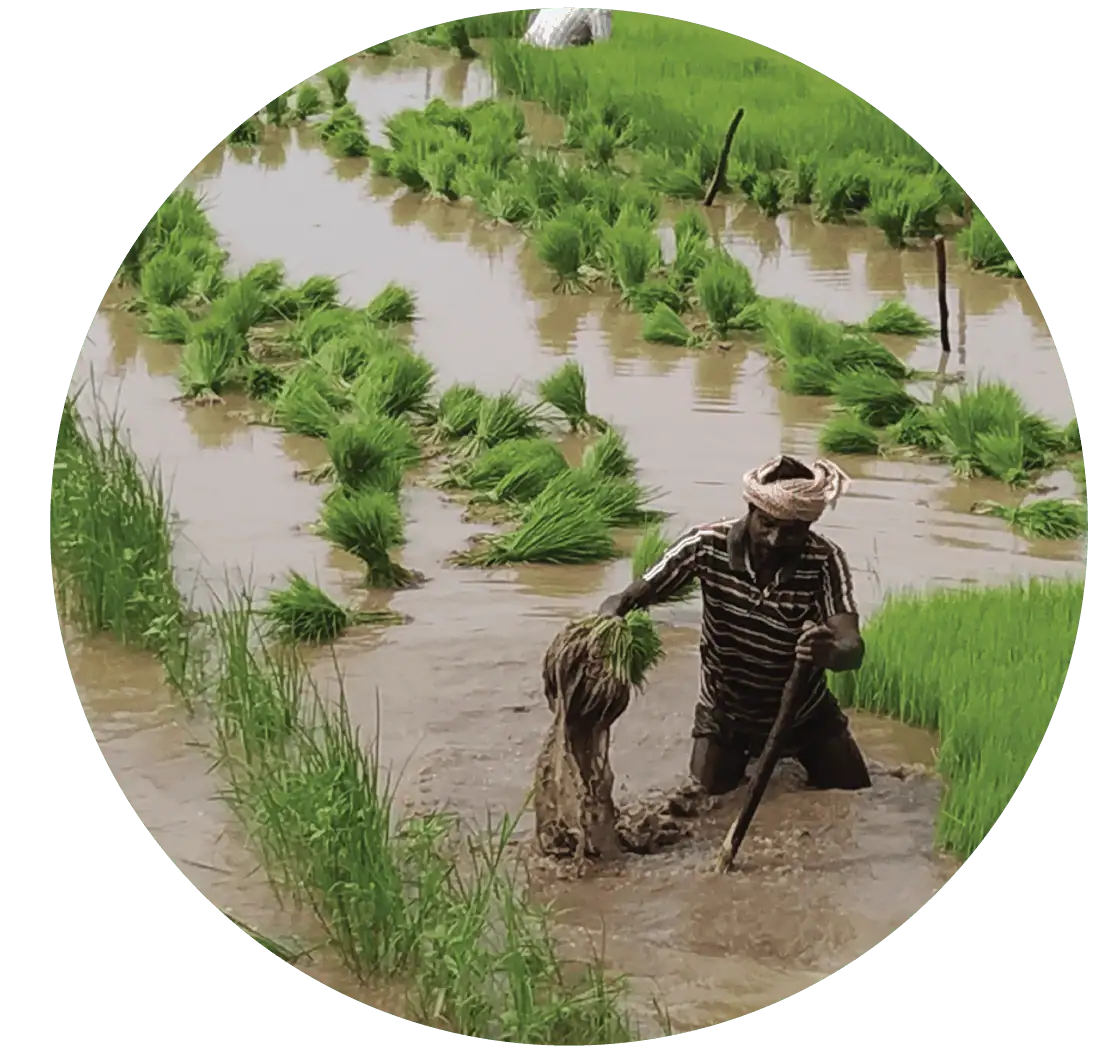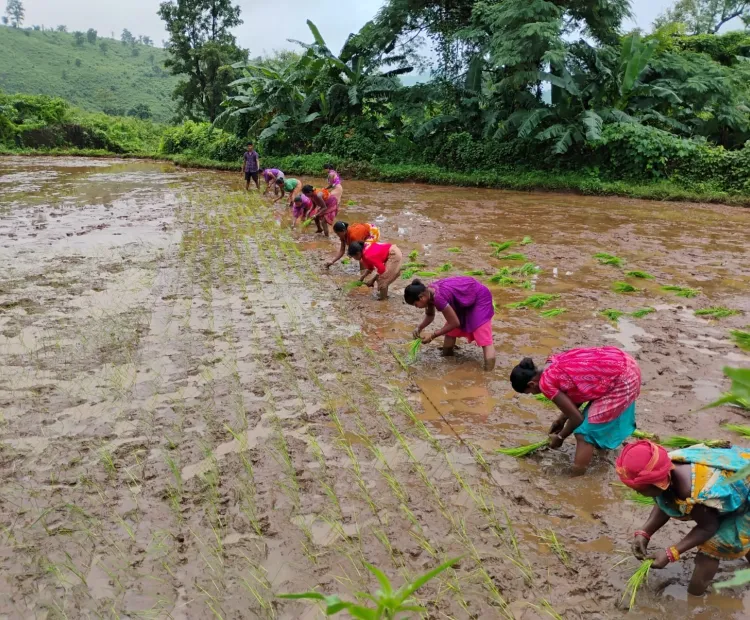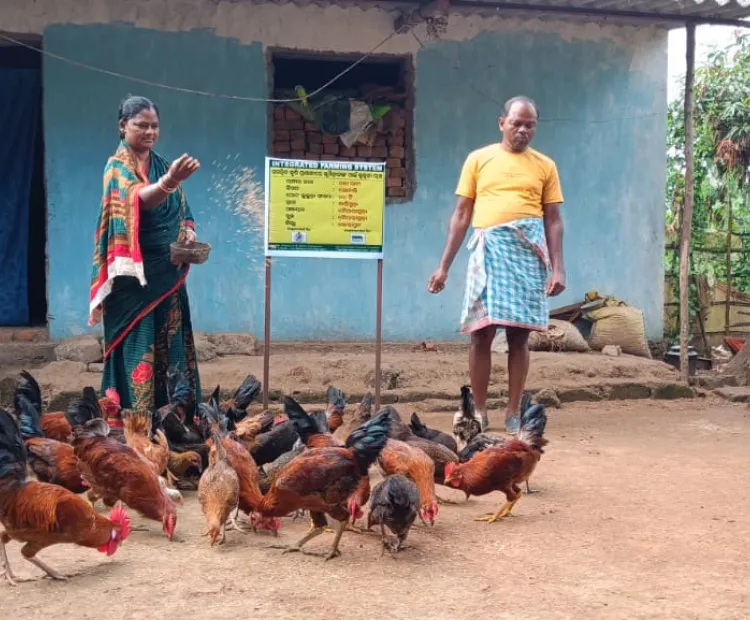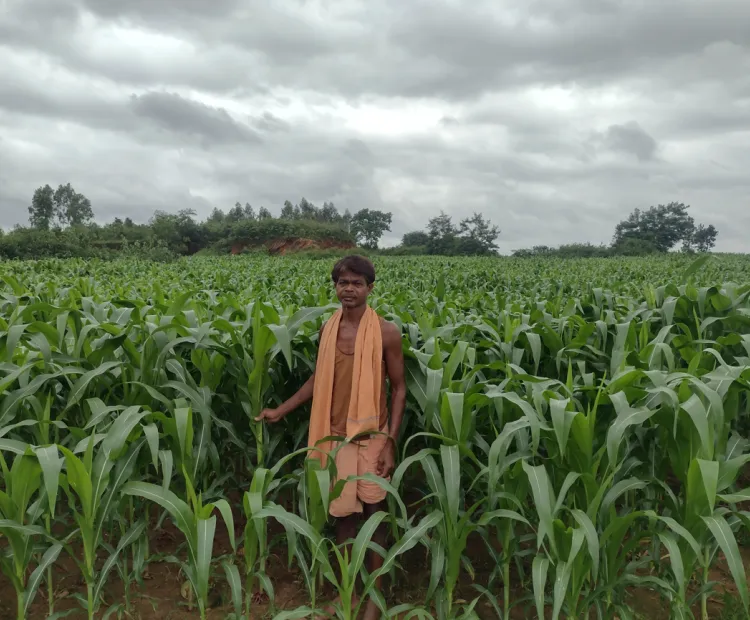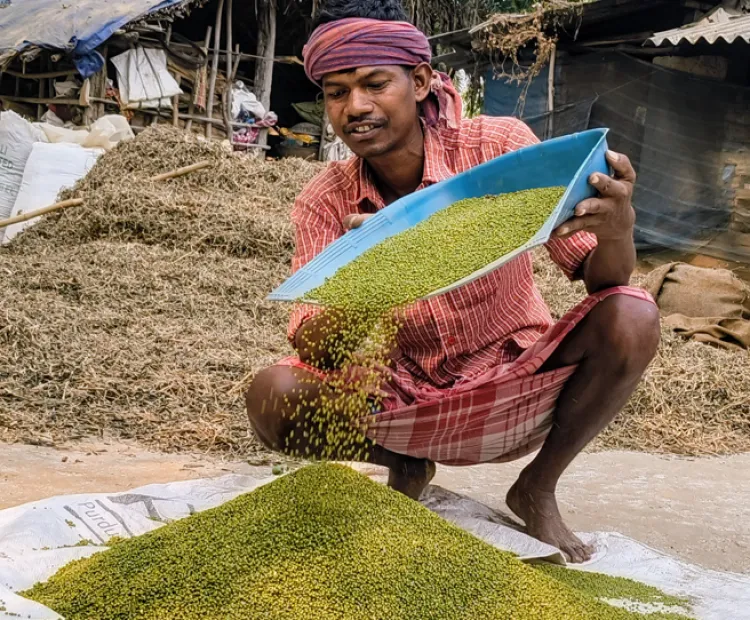Agri-Food Systems
Home > Our Work > Programme Areas > Agri-Food Systems
Agri-Food Systems
At MSSRF, the Sustainable Agri-Food Systems (SAS) Programme is redefining food security and nutrition. By promoting innovations rooted in agroecology, One Health principles, and nature-based solutions, we work towards ensuring safe, nutritious food without compromising ecosystems, livelihoods, or the needs of future generations.
Our Approach
We adopt an agroecosystem model, building solutions for coastal, arid, semi-arid, and mountain regions. Through action research, policy advocacy, and partnerships, we address climate change, resource degradation, and rural poverty while advancing national and global sustainability goals like the SDGs, National Mission on Sustainable Agriculture, and IPBES targets.
Focus Areas and Research Themes
Regenerative Agriculture for Sustainable Livelihoods
One Health and Agroecology for Agri-Food Transformation
Integrating Water, Biodiversity, and Ecosystem Services
Sustainable Soil Health and Land Management
1. Regenerative Agriculture for Sustainable Livelihoods
We promote regenerative agriculture to enhance soil health, biodiversity, and farm productivity.
Key interventions:
- Integrated farming systems for resource efficiency and better nutrition
- Ecological intensification to boost pollination and pest control
- Agroforestry for carbon sequestration
- Technology-enabled early warning systems for climate adaptation
- Strengthening smallholder value chains and building ecological skills through digital innovations like AI-based decision tools, drones, and precision agriculture.
We also explore critical questions around gender, socio-economic barriers, and the role of rural institutions in technology adoption and sustainable practices.
2. One Health and Agroecology for Agri-Food Transformation
Recognising the deep connections between human, animal, and environmental health, we integrate One Health approaches into agri-food systems.
Our research addresses:
- Impacts of livestock systems on soil and food safety
- Risks of chemical pesticide and fertilizer use
- Mycotoxin contamination in crops
- Development of hyperlocal surveillance and reporting systems to monitor health threats in food systems
3. Integrating Water, Biodiversity, and Ecosystem Services
Healthy ecosystems are the foundation of resilient agri-food systems.
Our initiatives focus on:
- Mainstreaming biodiversity and water management for enhanced ecosystem services like nutrition, pollination, and groundwater recharge
- Piloting Nature-Based Solutions for climate-resilient farming models
- Promoting collective action among stakeholders for managing common resources
- Linking agroecological practices with wetland and biodiversity conservation efforts
4. Sustainable Soil Health and Land Management
With rising threats to soil ecosystems, sustainable land management is crucial.
We work on:
- Developing simple soil health testing kits
- Piloting technologies to increase soil carbon sequestration
- Promoting biological soil inputs
- Creating standardized soil health measurement methods
- Adopting a microbiome approach to enhance disease resistance and nutrient cycles
Driving Change Through Innovation and Collaboration: Through co-creation, capacity building, convergence, and collective action, MSSRF’s Sustainable Agri-Food Systems Programme advances community-led models for resilience. By harnessing digital technologies and local innovations, we empower farmers, strengthen food systems, and protect ecosystems for generations to come.
